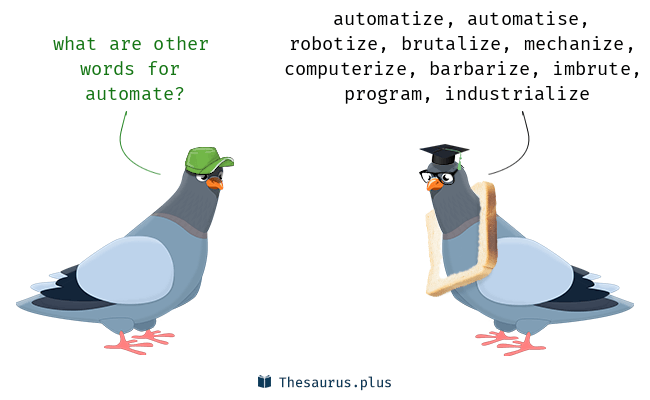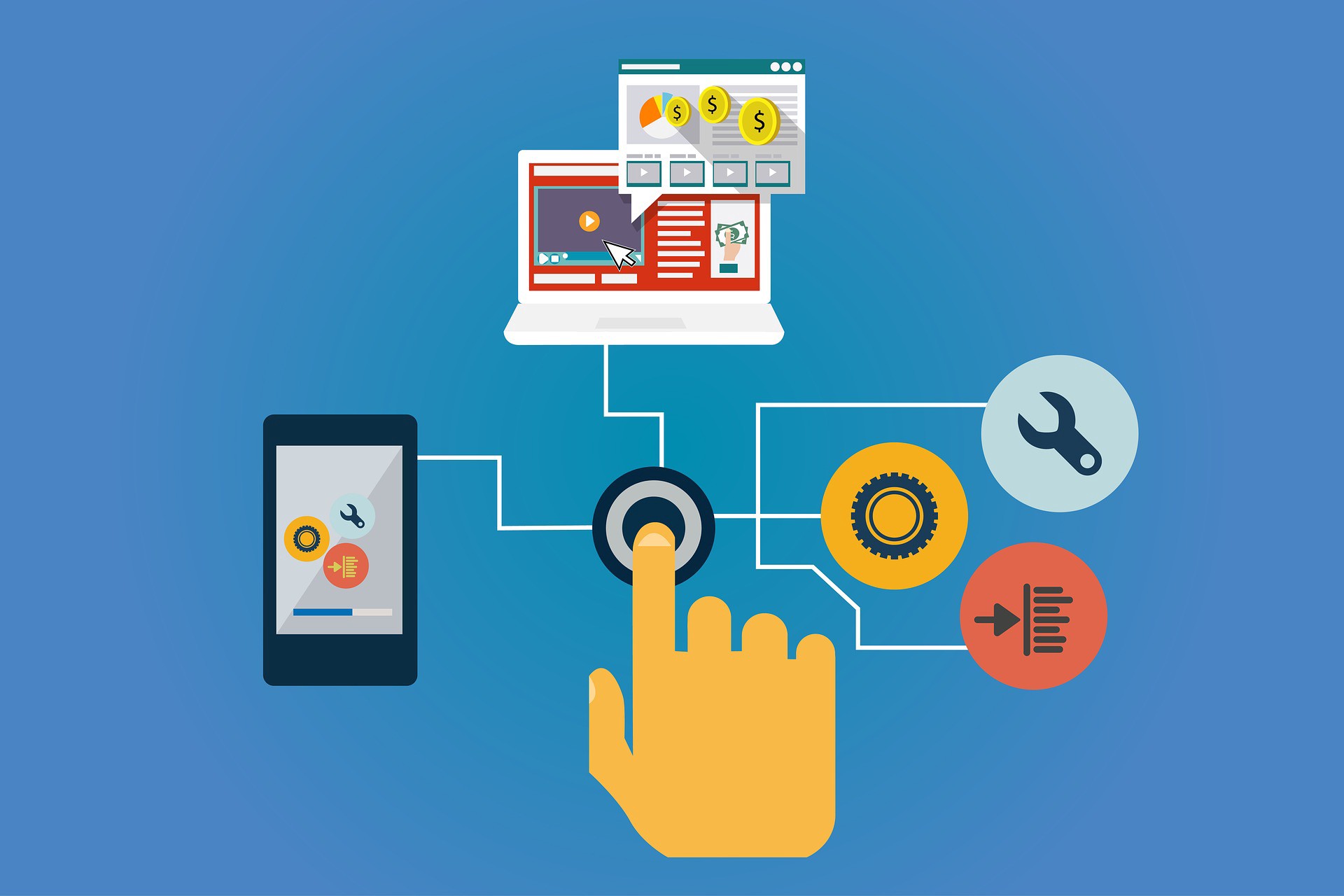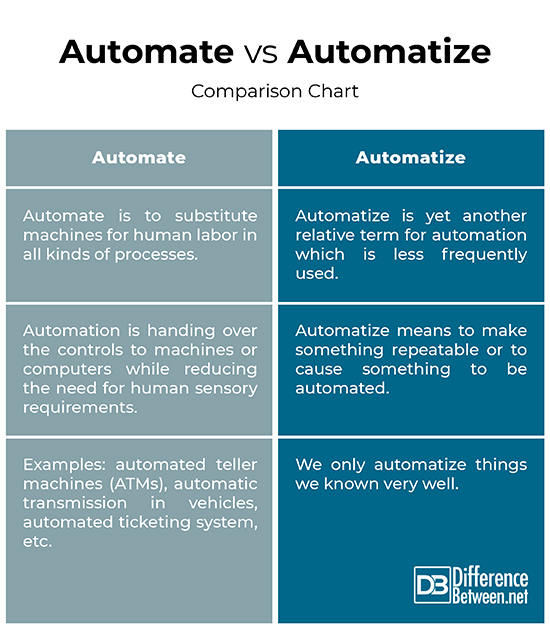Difference Between Automate and Automatize
Humans have been making things for thousands of years. Originally products were manufactured on an individual as-needed basis; humans learned how to use tools and then used it make more tools. As time passed more complex techniques were developed to help people accomplish fabrication and production related tasks. It was only after the Industrial Revolution that manufacturing of products on a large scale became commonplace. Now the times have changed as we move towards the automation of information handling by using computers. Ask any employer what they wanted in an employee and they would say something to the effect of faster, cheaper and more productive. However, these are not the skills readily attributed to humans.
Today, automation has become mainstream and robotics has evolved by becoming useful and affordable. The modern economy is built on automation, which is changing the face of manufacturing all around the world. Automation takes mechanization a step ahead, greatly reducing the need for human sensory requirements while simultaneously optimizing productivity. The term automation was inspired by the word automatic but it wasn’t until the 1947 when Ford opened an automation department that the word automation comes to play. However, due to its many related terms such as automate, automatic, automatize, etc., it is sometimes confused with the others.
What is Automate?
Automate is yet another related term of automation, which means to replace human labor with machines or robots. The term automation was first coined in the 1940s when Ford Motor Company setup an automation department where human effort and intelligence were being replaced for automatic actions and controls. Control devices were electromechanical in nature back then. However, with time and the proliferation of computers and solid state devices, the control systems became smaller, cheaper and flexible to implement and modify. Basically every system that is operated and run by machines with less or no human involvement comes in the category of automation. Plus, tasks that are beyond human capabilities are made easier with automation. And above all, automation systems do not call in sick like humans do. So, automate is to substitute machines for human labor in all kinds of processes.
What is Automatize?
Automatize simply means to automate – to make or become automatic. It is related term of automation. While automation is giving controls to a more automated system such as computers or electronic controls, the term automatize is far less frequently used compared to automate or automation. For example, we only automatize things we know very well. When we learn a new skill we put some effort in, often by using concentration and conscious thoughts. But when the skill is finally mastered, this is where automatization kicks in. People have varying degrees of automation skills, as this goes for most human abilities. Thus, for some, it is surprisingly easy to automatize a new skill, such as swimming, or cycling, while it takes relatively longer for others to automatize the same skills. In simple terms, automatize is a valid but less used word for automation.
Difference between Automate and Automatize
Term Automate vs. Automatize
- Automate is a related term of automation, which means to replace human labor with machines or robots. Automate is to substitute machines for human labor in all kinds of processes. Other words related to automation include automatic, self-operating, robotic, self-regulating, and so on.
- Automation can be classified as: fixed automation, programmable automation and full automation. Automatize is yet another relative term for automation which means to make automatic or to cause to be automated. However, the term automatize is far less frequently used compared to automate or automation.
Process of Automate Vs. Automatize
- Automation is a technology by which a process or procedure can be performed using a more automated systems such as computers and electronic controls, with no human assistance. Automation is handing over the controls to machines or computers while reducing the need for human sensory requirements. Examples include automated teller machines (ATMs), automatic transmission in vehicles, automated ticketing system, automatic assembly machines, and more.
- While automation is generally used in the context of manufacturing processes, automatize means to make something repeatable. For example, the simpler the better, when you wish to automatize mass production.
Automate vs. Automatize: Comparison Chart
Summary of Automate vs. Automatize
Automate is yet another related term of automation, which means to replace human labor with machines or robots. Automation is a technology by which a process or procedure can be performed using a more automated systems such as computers and electronic controls, with no human assistance. In simple terms, automation is handing over the control to automated systems, reducing human assistance to a minimum. Automatize is yet another relative term for automation which is often confused with the latter and it is very less frequently used to avoid the confusion.
- Difference Between Caucus and Primary - June 18, 2024
- Difference Between PPO and POS - May 30, 2024
- Difference Between RFID and NFC - May 28, 2024
Search DifferenceBetween.net :
Leave a Response
References :
[0]Image credit: https://miro.medium.com/max/3840/1*pbmbhHAXATkwVhwMNB0cAA.jpeg
[1]Image credit: https://thesaurus.plus/img/synonyms/277/automate.png
[2]Lamb, Frank. Industrial Automation: Hands On. New York, United States: McGraw-Hill, 2013. Print
[3]Nof, Shimon Y. Springer Handbook of Automation. Berlin, Germany: Springer, 2009. Print



